Photographs: Mohsin Raza/Reuters Ajai Shukla
Former cricketer Imran Khan's December 25, 2011 rally at Bagh-e-Qaid, Karachi which was attended by some 1,00,000 people, a bigger crowd than any political rally in the last two decades. Ajai Shukla reports.
Even sceptics of Imran Khan Niazi admit that the former playboy cricketer is now a serious contender for becoming Pakistan's next prime minister in the 2013 elections, if not sooner.
The massive turnout at his Christmas Day rally at Karachi highlights not just deep-rooted, Anna-style, public outrage at corruption, but also seething anger at Islamabad's spinelessness in the face of repeated violations of Pakistan's sovereignty by America.
Sensing political change, malcontents like former foreign minister Shah Mehmood Qureshi of the Pakistan People's Party; and Javed Hashmi of the Pakistan Muslim League – Nawaz, have already joined Imran's Tehreek-e-Insaaf (Movement for Justice). Others, including Musharraf's former information minister Sheikh Rashid --- always a reliable political bellwether --- are looking to follow suit.
...
Imran is riding a 'leher'
Image: Imran Khan gestures while delivering a speech to lead the Pakistan Tehreek-e- Insaf rally on December 25, 2011 in Karachi.Photographs: Akhtar Soomro/Reuters
Given the backing that Imran already enjoys from the all-important military, and from sections of the conservative clergy, he is more than confident. "I have all the opposition by their balls," he told The Daily Telegraph. "Whatever they do now will backfire."
The results of a YouGov-Cambridge poll released last Friday had 81 per cent of respondents naming him as the person best suited to lead Pakistan. Two-thirds of those polled said they would vote for the PTI.
It is true that the PTI does not have the organisational structure or the grassroots cadres of mainstream parties like the PPP and the PML-N. Nor have veteran political opponents like Nawaz Sharif seriously contested Imran's policy prescriptions. But India, of all places, knows the power of a "leher", a political wave, and Imran is unquestionably riding one.
...
Khan interacts with westerners as equals
Image: Khan is photographed on stage before leading a rally against drone attacks in Karachi.Photographs: Athar Hussain/Reuters
But these shenanigans of democracy are hardly relevant for General Ashfaq Pervez Kayani, the kingmaker at General Headquarters, Rawalpindi. Tired of Pakistan's elected leadership, Kayani needs a complaisant civilian facade to mask Rawalpindi's control over Islamabad.
For GHQ, Imran is an apparent godsend, decidedly preferable to the turncoat Nawaz Sharif who seemed a good proxy until he developed an inconvenient taste for mass politics.
Imran is closer to the army's inner aspirations: a macho Pakistani who beat India regularly (something GHQ never manages); someone who understands Pakistani strategy and geopolitics (his foreign policy advisor was the delusional, hawkish Shireen Mazari who says the Kargil conflict was "Indian aggression"); and a suave, articulate man who interacts with westerners as equals.
...
Imran: the interface between the army, the mullahs, and moolah
Image: Leaders of the opposition, All Parties' Democratic Movement, Imran Khan (R), Mehmood Khan Achakzai (L) and Qazi Hussain Ahmed talk during a rally in Rawalpindi.Photographs: Mian Khursheed/Reuters
Imran, in Kayani's game plan, will provide the window-dressing of democracy. He will deploy a democratic argument to halt United States operations in Khyber-Pakhtunkhwa; while maintaining relations with Pakistan's financial patrons in Washington. Imran is to be the interface between the military, the mullahs, and the moolah.
So what plans does Imran have for leading Pakistan? He has already declared that Pakistan must spurn foreign aid, since that only goes into the pockets of corrupt leaders and props up corrupt government. "If we don't have aid we will be forced to make reforms and stand on our own feet," he says.
Interestingly, this is exactly what the military wants. Hostages to repeated aid cut-offs, like Washington's recent suspension of $800 million, the Pakistani establishment now argues in multilateral forums like the WTO that aid flows be replaced by enhanced preferential quotas for Pakistani exports like cotton textiles.
...
Imran's viewpoint parallels GHQ's
Image: Supporters of Pakistan Tehreek-e-Insaf wave party flags and hold placards while listening Khan lead a protest against drone attacks in PeshawarPhotographs: Fayaz Aziz/Reuters
The idea is to enhance Pakistani trade flows, taxing them to make up for the aid money lost.
Next, Imran vehemently argues for halting Pakistani army operations in the Federally Administered Tribal Areas along the Afghanistan border and ending that "unwinnable war" through a political settlement with the Tehrik-e-Taliban Pakistan (TTP).
Here too, Imran's viewpoint parallels GHQ's, which is struggling with the double whammy of mounting casualties and ideological dissent in the ranks.
Imran also condemns US drone strikes in Federally Administered Tribal Areas, echoing the military-ISI line that radicalisation amongst tribesmen stems from America's presence in Afghanistan.
The Pakistan military calculates that an "end to operations; end to drone strikes" deal with the TTP could halt jehadi strikes across Pakistan, while simultaneously transforming the TTP from a foe into a "strategic asset" usable against India. Ending operations in FATA would also allow the Pakistan army to revert to its traditional India focus.
...
Imran and the army are on a collision course
Image: Pakistani Army Chief General Ashfaq Parvez KayaniPhotographs: Reuters
This convergence of views notwithstanding, an Imran in power is unlikely to toe the army's line unquestioningly.
In much of what he has lived, written and publicly stated, and in his current espousal of Jinnah's values, Imran clearly believes that India and Pakistan are natural rivals, but not natural enemies.
He has categorically pledged that no militant groups will operate from Pakistan if he comes to power, and has advocated deweaponisation across Pakistan to move away from the culture of the gun.
He is, therefore, on an inevitable collision course with the army.
How that plays out will depend on Imran's political ability to bring together and marshal multiple constituencies, and his ability to bypass the mistakes of the corrupt and discredited Benazir/Nawaz/Zardari cliques in emerging as a power centre that can challenge Pakistan's traditional India-hating establishment.
Can Imran moderate the military? Or will Kayani militarise the moderate? Rawalpindi is good at cutting down threats before they fully develop.

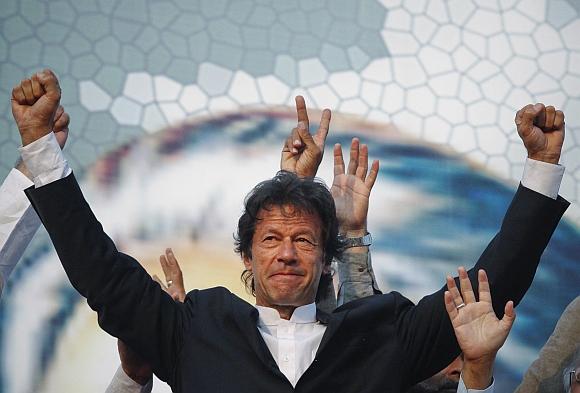
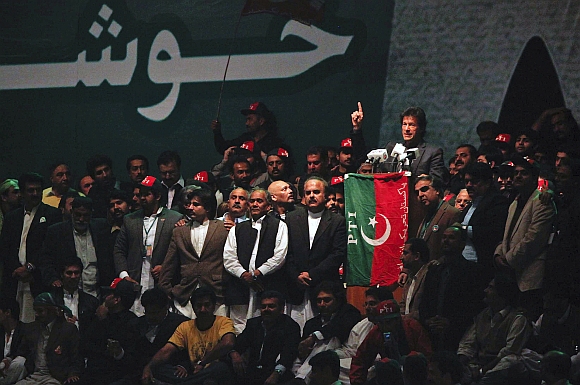
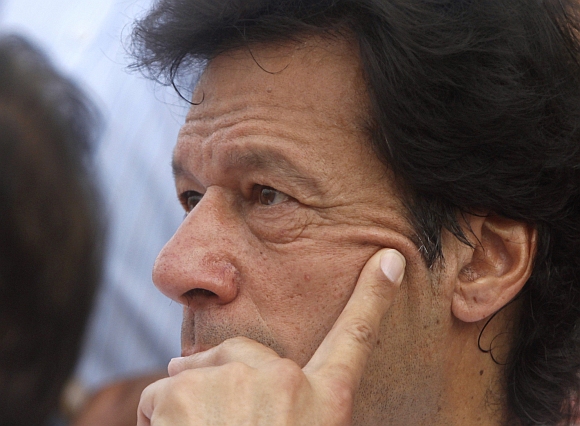

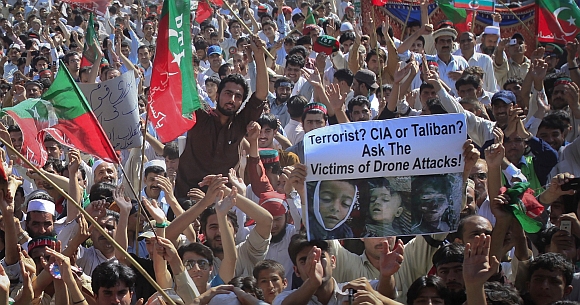
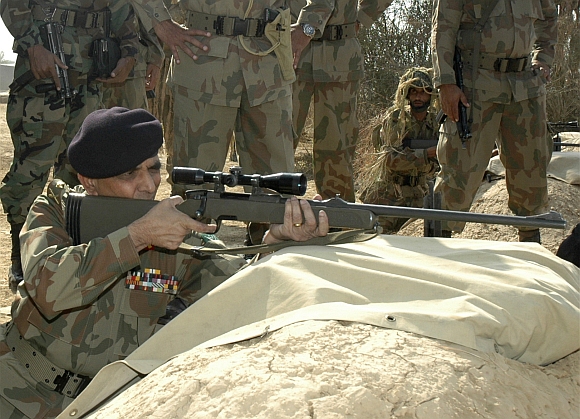

article